The North Atlantic Treaty Organization (NATO) summit will be held in Madrid, Spain from June 29th to 30th this year. NATO has been one of the deepest issues between Russia and Ukraine and is playing a major role after the outbreak of war between the two countries[1]. Finland and Sweden, which advocated neutrality as a national principle, have also had active discussions about joining NATO, and much attention was paid to their decision. As such, NATO has grown into an influential collective military alliance in the international community participating in various countries since its inception in 1949. With the June summit as an opportunity, let's take a look at NATO in general with CAH.
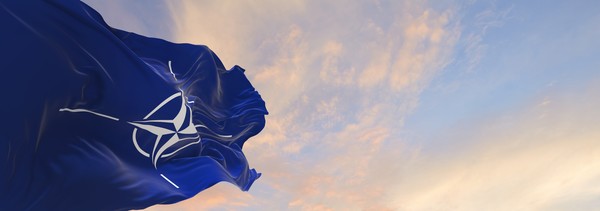
Background and History of NATO
After World War II (1939-1945), the Cold War started as the Soviet Union, the United States, and their allies confronted each other. On April 4th, 1949, the United States and 12 Western European countries[2] formed NATO after signing the North Atlantic Treaty in Washington DC to contain the Soviet Union's expansion into Europe. That is, NATO is a defense organization established to counter communist forces in Eastern Europe during the Cold War era. With Greece and Turkey joining in 1952, West Germany in 1955, and Spain in 1982, NATO served as a defensive wall in Western Europe during the Cold War. In 1955, the Soviet Union responded to NATO by organizing the Warsaw Pact, a communist military alliance in Eastern Europe. Seven countries in Eastern Europe were included, but as the fall of socialist countries in Eastern Europe started in 1989, the members started to leave. Two years after, the Warsaw Pact was officially disbanded. Since 1999, Eastern European countries that were members of the Warsaw Pact, such as the Czech Republic, Hungary, and Poland, have been participating in NATO. As a result, the oral agreement between the Soviet Union and NATO from the 1990 German Reunification, stating that NATO would not expand its power to the east, was not followed.
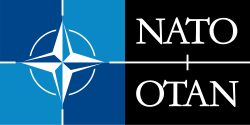
NATO, which was regarded to fail to realize its purpose due to the end of the Cold War, began intervening in global crisis management in the mid-1990s. After launching an airstrike on Kosovo that stopped Serbian security forces from attacking Albanian citizens in 1999, NATO started to lead the Kosovo peacekeeping force. And on September 11th, 2001, the 9.11 terrorist attacks occurred on the mainland of the United States, which is one of the leading members of NATO. It was a massive terrorist attack by al-Qaeda, an Islamic extremist group opposed to the United States. Subsequently, NATO called on Article 5 of the NATO charter to strengthen the security of the United States and its member states. If one of the member countries is attacked, it will be regarded as an invasion of NATO as a whole and will respond collectively. After the announcement of Article 5, NATO further strengthened the stance of the military alliance to perform a collective defense. Furthermore, it began to focus on preventing the proliferation of weapons of mass destruction and large-scale international terrorist operations. Since 2003, it has carried out its first military operations outside Europe, taking over control of the International Security Assistance Force (ISAF)[3] from the United Nations (UN). NATO, now one of the world's leading international organizations, has grown into a political and military alliance with 28 European and two North American countries.
![[Member States of NATO] https://bit.ly/3GQWbHD](https://cdn.herald.cauon.net/news/photo/202206/20717_11283_3445.png)
2022 Russian Invasion of Ukraine & NATO
Russia “NATO is in the War”
On February 24th, the Russian invasion of Ukraine, which the world was worried about, became a reality. NATO was at the center of the conflict between the two countries. After gaining independence from the Soviet Union in 1991, Ukraine has been pursuing NATO membership since the mid-2000s. In February 2019, its revised Constitution also specified NATO accession as the country's main goal. In contrast, Russia has criticized Ukraine for trying to join NATO. After the collapse of the Soviet Union in 1991, Russia felt a threat to national security as Eastern European countries under Soviet rule joined NATO, their former opponent. Thus, it has worked to prevent the westernization of Ukraine using its influence. In the end, the Russia-Ukraine War broke out amid various conflicting factors, including NATO, and NATO took an active role in military support on the side of Ukraine. A month after the invasion, NATO leaders, including Secretary-General Jens Stoltenberg, made their position clear, saying "We condemn Russia's invasion of Ukraine in the strongest possible terms." Another month later, on April 25th, the U.S. Secretary of State and Secretary of Defense visited Ukraine's capital Kyiv, promising to scale up their existing arms support. On the 30th, The Guardian reported the Russian foreign minister saying, “NATO, in essence, is engaged in a war with Russia through a proxy and is arming that proxy.” As Russia asserted that the United States and NATO were also participating in the war, the world faced increased fear of the crisis going global.
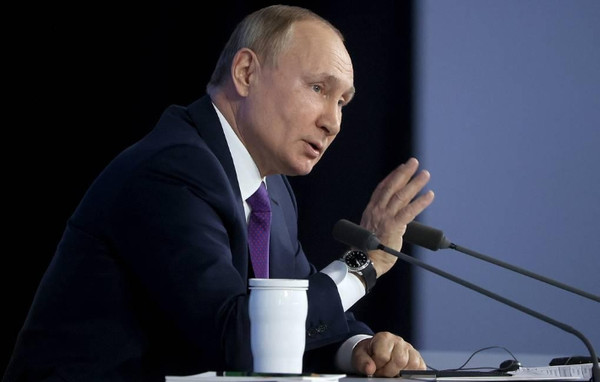
Will Neutral Finland and Sweden Join NATO?
Sweden and Finland, which had maintained neutrality as a principle in international affairs, announced their intention to reach a final agreement on NATO membership, drawing huge attention from the world. As of January, this year, Finland Prime Minister Sanna Marin had announced that the state had no intention of joining international military alliances, including NATO. However, in April, when Russia invaded Ukraine and the two countries went to war, she said everything changed and further stated, “Finland should be prepared for all kinds of actions from Russia.” Not only in Finnish politics but also among the citizens, voices demanding that their country join NATO have increased. According to Aljazeera on April 28th, Finland's support for NATO membership, which had previously stood at 20-30%, has risen to over 70% since the Russia-Ukraine crisis. And on April 11th, the BBC reported the fact that the Social Democratic Party of Sweden, which had "traditionally opposed NATO membership", said, "When Russia invaded Ukraine, Sweden's security position changed fundamentally". Two days later, on April 13th, in Stockholm, Sweden, Swedish Prime Minister Magdalena Andersson and Finnish Prime Minister Sanna Marin held a meeting to confirm their support for joining NATO. In response, Russia strongly opposed this. Russia's Kremlin spokesman Dmitry Peskov has criticized the two countries' move toward NATO as not conducive to stability in Europe. Furthermore, he said that Russia would "rebalance the situation with its measures" if the accession becomes real. It meant that Russia would consider Sweden and Finland, which were neutral countries, as enemies. Despite Russia's direct warning, on May 18th, both countries submitted official letters of application to join NATO.
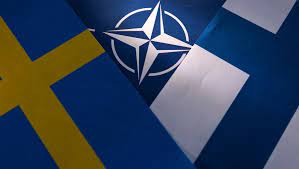
The Agenda of NATO 2022 Madrid Summit
NATO announced that it would adopt ‘NATO 2030’ which was revised for the first time since 2010 at its June meeting in Madrid, Spain. The agenda included NATO's plans to respond directly to Russia and China. In 2010, the strategic concept included promoting a genuine partnership with Russia, but the opposite strategy is expected to be adopted at this meeting. NATO Secretary-General Jens Stoltenberg has already mentioned on April 8th, that “there’s no way we can go back to the meaningful dialogue we tried to establish with Russia for many, many years.” In addition, it is the first time in 73 years since its establishment, a response to China is included in the strategic concept, which is prepared for NATO's survival and strengthening of influence in the international community. On April 26th, Tony Blinken, the United States Deputy Secretary of State, announced that the four Asia-Pacific countries, AP4, would also participate in the summit. AP4 is NATO's own name, which refers to the four key Asia-Pacific partners: Korea, Japan, Australia, and New Zealand. In other words, the United States directly expressed its will to contain China along with its allies, which is growing its military influence. It is also worth paying attention to how China will react to this. After the NATO summit in June 2021, China had already warned them that it would not remain silent if NATO posed a threat.
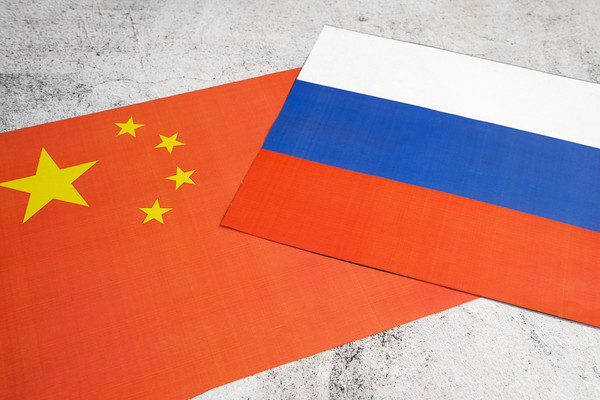
Meanwhile, at the most recent NATO summit held in Brussels, Belgium on March 24th this year, the leaders held discussions on a response to Russia and support for Ukraine. It was a time when the necessity for discussion arose due to the increased possibility of the use of biochemical/nuclear weapons and after the widespread killing of civilians by Russia in their invasion of Ukraine. Through the conference, the leaders agreed to strengthen defense capacities in the Eastern European Union in response to Russia and to increase the number of military supplies such as anti-tank, air defense systems, and drones provided to Ukraine. They also agreed to strengthen their readiness posture against biochemical and nuclear weapons. A detailed plan for this will be decided at the summit in June. Furthermore, the tenure of the current Secretary-General, Jens Stoltenberg, which was due to expire in September, has been extended by one more year. NATO allies said they have decided it is an inappropriate choice to change the head at a time when a security crisis is ravaging the world. Jens Stoltenberg, who has been leading NATO since 2014, has already been in office for eight years and has already has his term extended once. The Norwegian, who was due to assume the post of governor of his country's central bank after retirement, became the second longest-serving secretary-general in NATO history.
![[NATO Extraordinary Summit Brussels 2022] https://bit.ly/3luSBsV](https://cdn.herald.cauon.net/news/photo/202206/20717_11287_4019.jpg)
NATO summit to be held in June is expected to materialize countermeasures to contain Russia and China. The United States, a representative member state, has publicly acknowledged the confrontational relationship between the two countries when revealing these plans. Many countries will be able to confirm the political lines through the NATO summit. While the world is being divided into powers supporting Ukraine and Russia, CAH hopes that the NATO leaders, and leaders of all countries, will lead the international society in pursuing the safety of all global citizens.
[1] The International Desk of the April issue of the Chung-Ang Herald also covered the Russia-Ukraine crisis in depth.
[2] the United States, Canada, UK, France, Belgium, Netherlands, Denmark, Luxembourg, Denmark, Norway, Iceland, Portugal, Italy
[3] A coalition force established by the UN Security Council in 2001 with the goal of stabilizing and developing Afghanistan.

